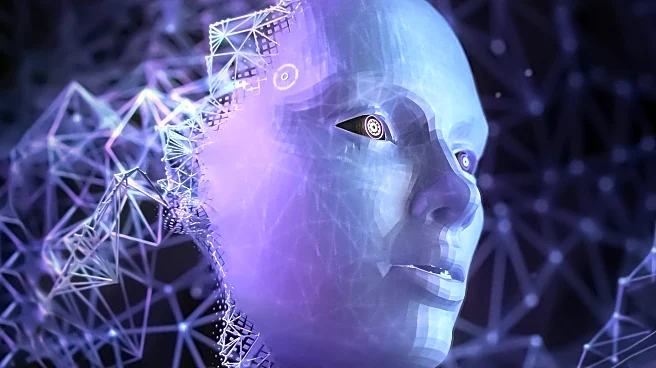What's Happening?
As AI technology becomes increasingly integrated into daily life, questions about meaning and purpose in the age of automation are emerging. OpenAI CEO Sam Altman recently pondered the future of fulfillment
and meaning as AI automates many tasks. The discussion highlights the importance of human experiences and the value of analog activities in a world saturated with AI. The concept of wabi-sabi, which finds beauty in imperfection, resonates as people seek meaning in the tangible and imperfect aspects of life.
Why It's Important?
The exploration of meaning in the age of AI underscores the broader implications of technology on human identity and purpose. As AI automates tasks, the value of human experiences and creativity becomes more pronounced. The focus on analog activities and shared experiences reflects a desire to preserve the human elements that AI cannot replicate. This conversation highlights the need for balance between technological advancement and the preservation of human values, ensuring that AI serves as a tool for enhancement rather than replacement.
Beyond the Headlines
The discussion around meaning in the age of AI raises ethical and philosophical questions about the role of technology in shaping human experiences. As AI becomes more prevalent, industries must address the impact on identity, creativity, and fulfillment. The focus on human experiences and the value of imperfection reflects a broader cultural shift towards preserving the elements that make us uniquely human. Stakeholders must navigate the complexities of AI integration, ensuring that technology enhances rather than diminishes the human experience.











